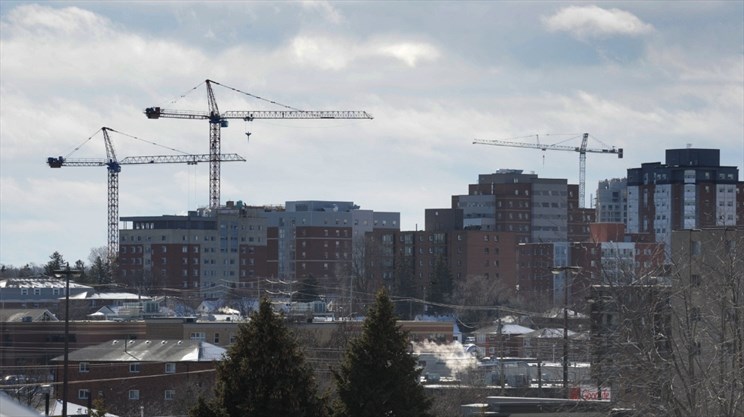With rising enrolment at Waterloo Region’s university and college campuses, and a growing skyline of new high-rise developments, buying a condo as a student rental property might seem like a can’t-miss investment opportunity.
But Waterloo Region’s landlord association is warning that many new owners may be getting in over their heads as they rush to jump into the local condo boom.
“I think it’s quite easy for a person to get swept away by the romantic idea of buying a condo, thinking it’s going to increase in value, that they’ll be making a bunch of money,” said Andrew Macallum, president of the Waterloo Regional Apartment Management Association.
“But I’ve heard plenty of stories of people getting in over their heads, believing the experience of condo ownership was going to be one thing, and it’s completely another,”
With hundreds of new condos coming online in Waterloo Region in the past few years, it’s also meant there’s hundreds of new landlords in town — many of them unclear on the laws regulating rental units, their obligations as owners and the impact of unexpected repair bills on things like condo fees and reserve funds.
They’ve also created an oversupply of new student rental units, meaning those investment returns people imagined when they bought their condos may not be materializing.
There have been plenty of stories in the news about problems faced by owners of new condos intended to be student rentals, including construction delays that angered tenants and disputes between builders and owners over property taxes.
Macallum’s association, formed in 1989 by landlords who now represent about 15,000 rental units around the region, says it can help new condo owners navigate things like the Residential Tenancies Act, the Protecting Condominium Owners Act and municipal bylaws that affect rental housing.
But becoming a condo landlord isn’t a path to easy money, and condo owners need to do their homework before they leap, Macallum advised.
“You need to understand the legislation, you need to understand your obligations. It can be very intimidating being on an island and not knowing who you’re paying property taxes to,” he said. “So there can be some assurance talking to people who’ve been down that road before.”
What’s clear is more people are living in condos in Waterloo Region, and across the country, than ever before.
More than 13 per cent of Canadian households today are condominiums — and about a third of them rented to tenants.
Many parents, particularly those overseas sending their kids to Waterloo Region schools for an international education, now seem to prefer new condo buildings with higher-end amenities — think marble counter tops and stainless steel appliances, Macallum said.
That’s a change from the down-market accommodations many people might remember from their own university days.
But as builders have raced to bring new condo units onto the local market, the supply has outstripped the demand in the areas surrounding Waterloo’s campuses, according to the Canada Mortgage and Housing Corporation.
The enrolment at the University of Waterloo and Wilfrid Laurier University grew by about 14,500 full-time students between 2000-2010.
That growth caused developers to start a condo boom in Waterloo — causing supply to actually outstrip demand by about 5,000 beds in the five years that followed.
“Construction of housing geared to students now outpaces the increase in enrolment, which has slowed,” the CMHC said, in a report from last February.
What’s clear is the condo boom is changing the way people rent properties in this region and in urban centres across the province.
Instead of having one landlord look after an entire building, which was the conventional model for decades, high-rise condo units can have hundreds of landlords, and many of them are often out-of-town owners who pay third-party property management companies to handle their leases with students.
That new model can sometimes leave condo owners unclear about who’s on the hook for repairs to their building, and frustrated tenants stuck in the middle.
“If you go back a generation, an apartment building would have one owner and everyone living there would be a renter,” Macallum said.
“Today, a single building can have up to 70 per cent of its condo units rented out, and not everyone is paying the same rent. So there’s been a huge shift.”

